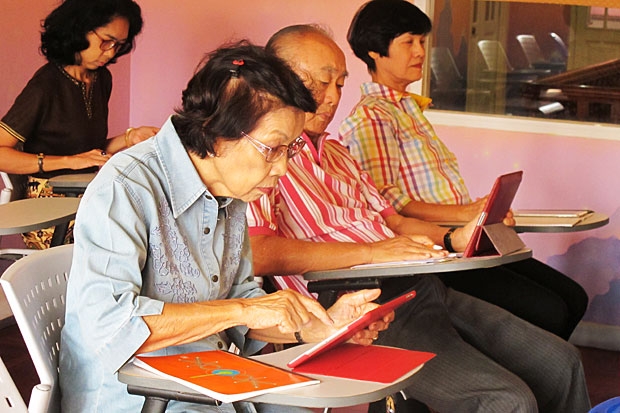How knowledge workers can develop themselves when times are hard
- Published: Jul 4, 2016 04:30
- Writer: Kriengsak Niratpattanasai | 4,048 viewed
During times of crisis, most organisations strictly control their training and development budgets. Nevertheless, smart knowledge workers always figure out how to develop themselves.

The first principle of self-development is that we are responsible for our own growth. Once you have embraced this belief, your learning and development opportunities are unlimited. Where to start?
On the job: learning from experience. The report "Eighty-eight Assignments for Development in Place", written based on research by Michael Lombardo and Robert Eichinger from the Center for Creative Leadership, has found that learning on the job is the best way for a person to develop.
While not all the jobs offer high development opportunities, here are 11 assignments that I took from their list:
1. Deal with a business crisis.
2. Assign an "undoable" project (the last person who tried it failed).
3. Go off-site to troubleshoot problems (deal with a dissatisfied customer).
4. Start something small (e.g., hire a secretarial pool).
5. Run a taskforce on a business problem.
6. Manage an ad hoc group of inexperienced people.
7. Manage an ad hoc group of low-skilled people.
8. Manage an ad hoc group to develop ideas -- people are experts, a person is not.
9. Manage an ad hoc group in a static operation.
10. Manage an ad hoc group in a rapidly expanding operation.
11. Supervise cost-cutting.
Find a mentor: There are three approaches you can take, as follows:
1. Inside your organisation. Look for someone you admire. You don't need to look too high up. Find a person who is one or two levels higher than you. Identify specific area that you want to learn about from a potential mentor. Look for some things that you're unable to find from books, manuals or online. A mentor from inside the organisation can teach you about how to excel within the organisational culture, how to manage difficult people, how to navigate your career successfully, how to manage diverse stakeholders and how to manoeuvre internal politics.
2. From the project. If you are able to volunteer for one of the abovementioned 11 assignments, chances are you can find a mentor within the project. This person could be the project manager, the project coordinator, or a key influencer on the working team. You can learn project management skills, people skills or conflict management from them.
3. From the outside. Look at the contact list on your mobile phone. Who could be your potential mentors? Identify some of them. Then, call to ask them.
Finding a mentor is not difficult. The difficulty is asking them. You will surprised, though, to find that most people will be happy and willing to help. You have to have the courage to ask. If you are not sure whom to ask, perhaps you can start to become a mentor. Being a mentor is also a great way of learning. You learn coaching, leadership and communication skills.
Another way to gain from mentorship is find a reverse mentor.
In his book, What the Best CEOs Know, Jeffrey Krames wrote about how Jack Welch, the former CEO of GE, first learned about the idea in 1999 during a trip to a GE unit in the United Kingdom. A manager there told him about a "reverse mentoring" programme in which the youngest people in the organisation taught the oldest how to use the internet. "It was the best idea I ever heard," said Mr Welch, who implemented the idea among his top 1,000 managers within two weeks.
Personally, I have a few Generation Y people who are mentoring me about how they think, which is quite different from the way my generation approaches things. The knowledge I have learned from them is helping me provide better executive coaching for millennial executives.
Self-development: You can learn to develop your strengths to move from good to great. In his book Go Put your Strengths to Work, Marcus Buckingham outlines these steps:
1. Identify your strengths:
- I feel good when I do ...
- I feel energised when I do ...
- I feel enjoyment when I perform the task ...
- I am looking forward to doing ...
2. Choose only one strength for your development plan. Use these guidelines as your criteria:
- It's a unique strength in which you're second to none.
- It has high impact on your overall performance.
3. Identify your development plan:
- What must you do to upgrade this strength?
- What books must you read?
- What training must you attend?
- What research must you do?
- Who must you shadow with in order to learn?
- Who must you meet (friend, mentor, coach, teacher, boss)?
- Who must you teach?
- What can you do in order to better this strength? What else?
In conclusion, there are lot of actions you can take to develop yourself. The most important is "Just do it".
Kriengsak Niratpattanasai provides executive coaching in leadership and diversity management under the brand TheCoach. He can be reached at coachkriengsak@yahoo.com. Daily inspirational quotations can be found on his Facebook fan page: https://www.facebook.com/TheCoachinth. Previous articles are archived at http://thecoach.in.th


